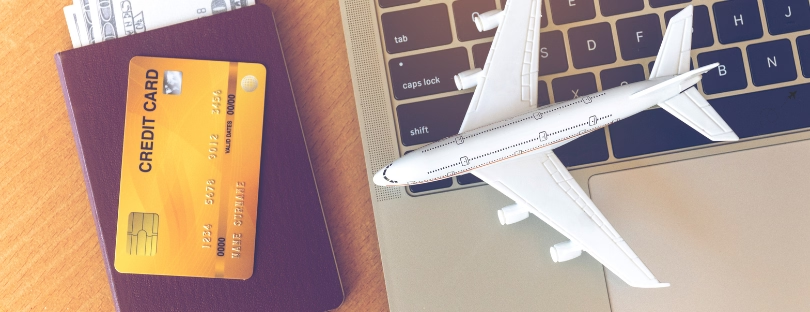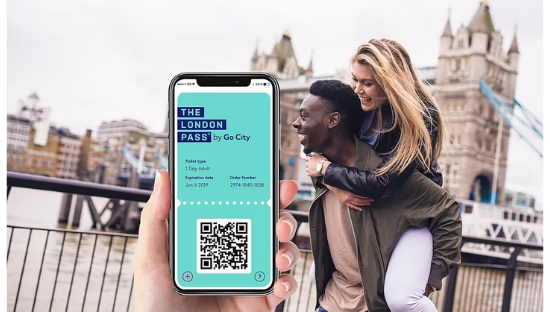
New Study Reveals 45% of Brits Visit Websites Multiple Times Before Travel Purchase
In a rapidly evolving landscape, travelers are changing the way they engage with brands and make purchasing decisions. Recent findings from Quantum Metric reveal significant insights into the behaviors of British consumers as they navigate their travel planning and purchase.
In this article, we’ll dive deep into the statistics, trends, and implications of this travel purchase research, providing a comprehensive overview of what it means for the travel industry.
Key Findings on Traveler Behavior
A Closer Look at Consumer Engagement
Recent research has shown that 45% of Brits engage with travel websites 2 to 3 times before making a purchase. This indicates a major shift towards more thorough research and consideration before finalizing travel plans.
- Frequent Visits: Many travelers are not just hopping on a site for one quick look; they’re taking their time.
- Research Rituals: This behavior suggests a growing trend where consumers invest time in discovering the best deals, examining options, and comparing prices.
Changing Preferences for Frequency and Timing
Year-Round Discounts vs. Seasonal Sales
The report titled “The Fall of Peak” highlights a crucial shift in consumer preferences. Here’s what we found:
- 50% of Brits now favor consistent, year-round deals rather than waiting for scheduled sales like Black Friday.
- Only 14% are willing to hold off until Cyber Monday or Travel Tuesday for holiday bookings.
This tendency indicates a desire for continuous engagement rather than seasonal rushes, making it imperative for travel brands to rethink their marketing strategies.
Early Holiday Planning: The 2024 Christmas Rush
Did you know that 22% of travelers had already booked at least half of their holiday travel by October? This signals the importance of early promotions and a need for brands to adapt swiftly to these behaviors.
The Impact of Cost Consciousness on Travel Purchase Decisions
Despite the shift towards early bookings and more frequent website visits, consumers remain cautious about spending. The average order values in the travel sector dropped by an astonishing 30% between July and September this year, underscoring the need for brands to craft enticing yet affordable offers.
The New Landscape of Travel Marketing
What Does This Mean for Travel Brands?
Continuous Optimization is Key
As Danielle Harvey, global VP at Quantum Metric, aptly advised, travel businesses must ensure a seamless digital experience. Here’s why:
- Multiple Touchpoints: The multiple website visits highlight the need for consistent brand interaction.
- User Experience: If customers encounter obstacles, they’re less likely to return.
The Importance of Personalization
Driving Loyalty and Conversions
In a world where travelers seek personalized experiences, tailored marketing can significantly enhance engagement. Brands should consider these strategies:
- Customized Promotions: Offering deals that resonate with individual preferences encourages loyalty.
- Preferred Payment Methods: Allowing users to choose their preferred ways of paying can boost conversion rates.
Emphasizing Year-Round Engagement
Utilizing Data Analytics for Better Insights
To keep pace with these changing behaviors, travel brands must leverage data analytics. Here’s how to do it effectively:
- Monitor Engagement: Track how customers interact with your website across various touchpoints.
- Examine Purchase Patterns: Understanding when consumers decide to buy can help tailor marketing efforts more effectively.
Adjusting Marketing Strategies
Transitioning from Peak to Continuous Sales
With peak seasons becoming less defined—43% of digital leaders agree—travel brands need to adapt accordingly. Here are some considerations for sustained engagement:
- Shift Marketing Focus: Move beyond traditional seasonal peaks to maintain ongoing promotional efforts.
- Consistent Messaging: Communicate value regularly, keeping your brand top of mind for potential customers.
 The Role of Digital Platforms
The Role of Digital Platforms
Leveraging Technology for Enhanced Experiences
With increasing consumer reliance on digital platforms, it’s essential for travel brands to invest in technology that enhances user experience.
Key Features to Implement
- Fast Loading Times: Reduce wait times to keep users engaged.
- User-Friendly Interfaces: Ensure that navigating through options is intuitive and straightforward.
- Mobile Optimization: With many users visiting from mobile devices, optimizing your site for mobile is non-negotiable.
Addressing Consumer Needs in Real-Time
In the dynamic travel industry, understanding and addressing customer needs quickly can give brands a competitive edge. Consider implementing:
- Chatbots for Immediate Assistance: These can help resolve inquiries rapidly.
- Feedback Mechanisms: Actively seek customer feedback to find areas for improvement.
Looking Ahead: The Future of Travel Consumerism
Preparation for Future Trends
As the travel landscape evolves, so do consumer expectations. Here’s what we predict:
- Increased Demand for Sustainability: More travelers are prioritizing eco-friendly options.
- Focus on Experience Over Price: Consumers are expected to value unique experiences over traditional price comparisons.
Strategies for Staying Relevant
To remain ahead in this changing environment:
- Stay Updated on Trends: Regularly review industry reports and consumer behavior studies.
- Embrace Flexibility in Offers: Being adaptable with pricing and travel options could capitalize on last-minute travelers as well as planners.
Conclusion: Embracing the Change
As we move forward, travel brands need to recognize and adapt to evolving consumer behaviors. The shift towards more frequent online engagement, the preference for personalized experiences, and an emphasis on year-round deals are pivotal for success. By implementing strategies that prioritize user experience and ongoing engagement, travel businesses can build lasting relationships with their customers.





 The Role of Digital Platforms
The Role of Digital Platforms



